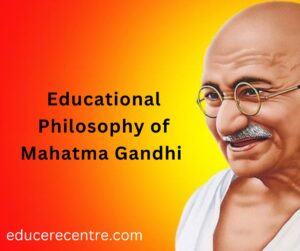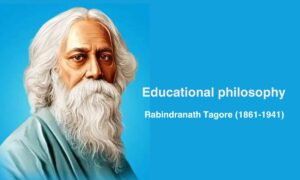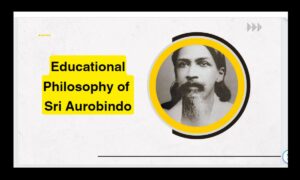Paulo Freire (1921-1997) was a Brazilian Philosopher and Educationist his radical educational theory inspired a whole generation of critical educators. He was also known as the Father of Critical pedagogy.
He is regarded as one of the most significant educational thinkers of the 20th century. Two of his most phenomenal academic texts were the ‘Pedagogy of the Oppressed’ and ‘ Cultural Action for Freedom’.He worked incessantly for the development of educational practices, informal education and in an adult educational programme
Fundamentals of Paulo Freire
1. Banking System of Education
- The term ‘Banking system of Education’ has been used ironically by Paulo Freire to explain the educational system that prevailed in those times.
- He called it as ‘banking model of education’ because he felt that teachers in those times just filled the minds of students with information and did not care if any learning happened in the minds of the students or not.
- He felt that teachers were acting like depositing information into empty accounts (empty minds). of students. He was completely against the banking model of education that prevailed in them.
2. Problem Posing Method
- He suggested ‘problem posing’ method which is based on democratic principles. It is based on the principles that a student learns the best when he creates knowledge and when knowledge is created for him
- He said that students should be free to ask their doubts and pose questions. There should be a healthy dialogue between the teacher and the students.
- The term ‘problem posing method’ has been used because in this type of education, the whole learning is impelled by a real problem that deals with the life situation.
3. Critical Pedagogy
- Paulo Freire introduced the concept of Critical Pedagogy. It is an educational approach for developing critical consciousness awareness in the learner.
- It is the ability to critically perceive the causes that germinate social, political and economic oppression and act against the oppressive elements of society.
- Critical pedagogy is the strategy of teaching that enables the students to question and challenge the domination exerted by powerful groups and resist the beliefs and practices that dominate society.
- It is an educational methodology that seeks to increase the student’s awareness of the hidden curriculum’s inequalities and multiple forms of oppression that exist in the social system. It encourages them to act towards creating a more democratic and equitable society.
4. Education for liberation
It is a pedagogical plan by Paulo Freire that is a roadmap to liberate those who are oppressed. Liberating education is aimed at imparting the learners with a critical perception of their own social reality which would make them aware of their democratic right to participate social reconstruction.
5. education for conscientization
By this Freire meant to cultivate conscientization or critical consciousness (critical awareness) in the mind of the learners. conscientization is the ability to critically analyse the cause of social, political and economic oppression and take action gains the oppressive elements of society.
6. Praxis
- Freire introduced the term ‘paraxis’ with which he meant a synthesis of reflection and action in the learning process. He considered praxis as the objective of problem-posing education.
- He described paraxis as the reflection and action upon the world to transform it. It is a complex activity wherein individuals recreate culture and society and evolve as critically conscious human beings. It constitutes a development of critical consciousness combined with social action
There are 3 main steps of Praxis are-
- To see the situation as lived by the individual in society
- To analyze this situation, the root cause (socioeconomic, political, cultural etc.) and
- To act to transform this situation, following the norms of Social Justice
EducationalPhilosophy of Paulo Freire
The main function of education is to humanize individuals through conscious action for the purpose of transforming the world. He stated that the aim of education is to break the culture of silence among the oppressed and conscientize them to speak for their rights and develop their way of thinking
According to Paulo Freire, “Education is the cultural action for freedom. Education is the practice of freedom opposed as to the practice of domination. Liberating education consists of acts of cognition. Education is a knowing process rather than a memorizing process”
Aims of Education
- Develop critical consciousness
- Holistic development of personality
- Awareness of the Influence of Politics on Education
- Develop self-sufficiency and self-dependency
- Develop students as well-informed citizens who are ready to challenge any sort of oppression from the dominant class
- Develop awareness of the hidden curriculum’s inequalities
Curriculum
- Diversified curriculum catering to the interest of all students
- Subjects such as social science, political science, literature, history, and vocational education must be included
Methods of Teaching
- Dialogue method
- Democratic Teaching
- Problem posing Method
- Experiential learning
- Critical pedagogy
- Activity-based projects
- Build knowledge society and culture circle
- Co-construction and reconstruction of knowledge
Role of Teacher and Student
- Teachers must be well-informed, experts, practice democracy and agents of social change
- They must guide the students to develop insights and consciousness in social and political spheres
- Egalitarian, harmonious and respectful relations between the teacher and student.
Role of school and Discipline
- Schools provide a democratic environment
- Self and social Discipline must be followed
Paulo Freire Banking Education-Details
Freire compares education with the concept of Banking. He says, that in the banking concept of education, knowledge is given by those who consider themselves knowledgeable to those who they consider to know nothing.
According to Paulo Freire, the main features of Banking Education are-
- The teacher teaches and the students are taught.
- The teacher knows everything and the students know nothing
- The teacher thinks and the students think about
- The teacher talks and the students listen meekly
- The teacher disciplines and the students are disciplined.
- The teacher chooses and enforces his choices, and the students comply
- The teacher acts and the students have the illusion of acting through the action of the teacher.
- The teacher chose the programme content, and the students (who were not consulted) adapted to it
- The teacher confuses the authority of knowledge with his professional authority, which he sets in opposition to the freedom of the students.
- The teacher is the subject of the learning process, while the pupils are mere objects
Educational Implication of Paulo Freire Educational Concept
By analyzing Freire’s Pedagogy, we are able to identify his significant contribution to education:
- Emphasis on dialogue-He upheld that education is a dialogical (conversational) rather than a curricular form and his dialogue should not involve one person acting on another, but rather people working with each other. A dialogue, not only requires critical thinking but also generates critical thinking in the participants.
- Concern with praxis-action that is informed and linked to certain values. He upheld that dialogue should result not only in deepening understanding but also in taking informal actions and making a difference in the world.
- Concern with conscientization-developing consciousness that is understood to have the power to transform reality.
- Insistence on the lived experience of a participant in educational activity to suit the living situation/experience of the people.
- Freire’s works have been implemented not only in social studies and curricular studies and curricular studies in adult education, secondary education and higher education but also in such diverse subjects like mathematics and physics, educational planning, feminist studies, languages, educational psychology and so forth
Conclusion
The aim of teaching according to Friere is not an act of depositing, in which the students are the depositories and the teacher is the depositor. He calls for the change of the educational goal of deposit making and replacing it with the posting of the problem of men in their relations with the world.
It’s very important to note that Freire’s work continues to be reinvented and re-clarified according to the changing political and intellectual thought and social movements


